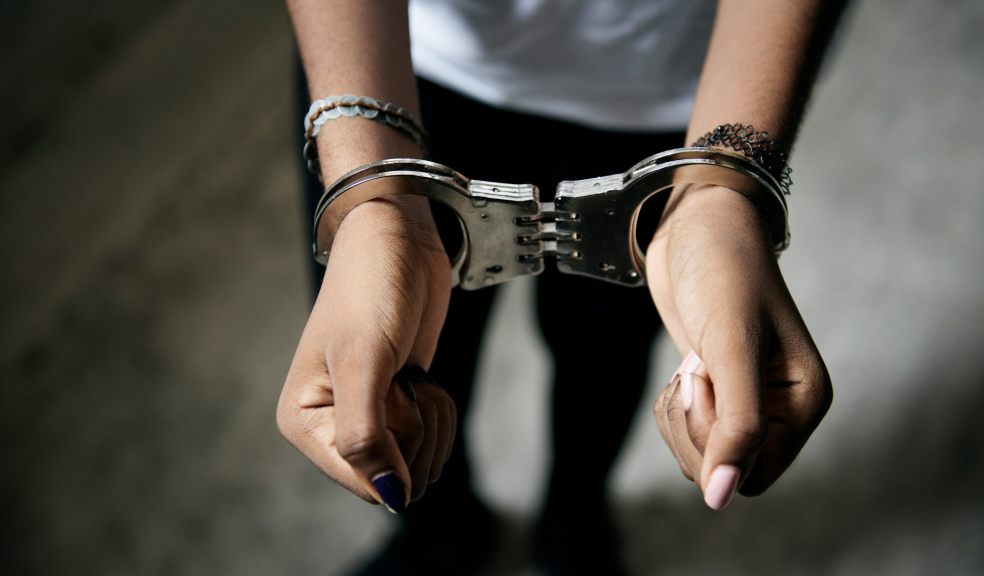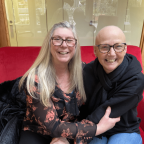
Bella May Culley Has Been Found: Is the British Youth in Crisis?
A British teenager, Bella May Culley, 18, from Billingham, County Durham, who was reported missing while traveling in Thailand, has been arrested over 4,000 miles away in Tbilisi, Georgia, on serious drug smuggling charges.
She is accused of illegally purchasing, possessing, and importing a large quantity of narcotics, including approximately 14 kilograms of cannabis and hashish, found in her luggage at Tbilisi International Airport.
Bella had been traveling in Southeast Asia, spending three weeks in the Philippines after Easter before arriving in Thailand around May 3. She was last heard from on Saturday, May 10, when she messaged her mother, Lyanne Kennedy, saying she would FaceTime later. However, the call never happened, and her phone appeared to be switched off.
Her family launched an international search, with her father and aunt flying to Bangkok to help find her, only to learn on May 13 that she had been detained in Georgia on suspicion of drug offenses.
Georgian authorities charged Bella with smuggling a “particularly large amount” of narcotics, which carries a potential sentence of up to 20 years or life imprisonment under Georgian law. Local media reported that 34 hermetically sealed packages of marijuana and 20 packages of hashish were seized from her possession during a security check at the airport.
Footage showed Bella in handcuffs being escorted into the Central Criminal Police Department in Tbilisi. A judge denied her bail, citing her as a flight risk, and she remains in custody pending trial.
Bella, a nursing student who had recently completed a course at Middlesbrough College, had posted videos and photos of her travels on social media, including clips of herself smoking cannabis and flaunting large sums of cash.
She also referenced the American outlaws Bonnie and Clyde in her posts. Her last social media activity was on May 9, just before disappearing.
In a recent court hearing in Tbilisi, Bella claimed she is pregnant and chose to remain silent regarding the drug charges. She is now set to undergo a medical examination to verify her claim. Her lawyer confirmed that her father is en route to Georgia to support her. The teenager is reportedly “terrified and confused” about her situation.
The Georgian prison where Bella is held, Tbilisi Prison No. 5, is the country’s only female prison and has been criticized by human rights organizations for severe overcrowding and poor conditions, described as “degrading” and “inhuman.” If convicted, Bella faces spending many years in this harsh environment.
The British Foreign Office has confirmed Bella’s detention and is providing support to her family. Cleveland Police also confirmed her arrest in Georgia and are assisting the family. The circumstances of how Bella traveled from Thailand to Georgia remain unclear, adding to the mystery surrounding her case.
Bella’s mother expressed deep worry and regret about her daughter’s trip to Thailand, saying she begged her to come home and did not trust some of the people Bella was meeting there. The family’s priority now is to ensure Bella’s safety and to bring her home.
British Women Caught in Drug Smuggling Schemes: A Pattern of High-Profile Cases
Bella May Culley’s arrest in Georgia on drug smuggling charges is unfortunately not an isolated case involving British women caught in international narcotics trafficking. Over the years, several prominent cases have highlighted how young British women have fallen into drug smuggling schemes, often facing harsh penalties abroad.
The Peru Two
One of the most notorious cases involved Michaella McCollum and Melissa Reid, known as the "Peru Two." Arrested in 2013 at Lima’s Jorge Chávez International Airport, their luggage contained 12 kilograms of cocaine worth around £1.5 million. The women, from Northern Ireland and Scotland, initially claimed coercion but later pleaded guilty and were sentenced to over six years in prison.
Both served part of their sentences before being released and returning to the UK. Their story received extensive media coverage and was featured in documentaries such as Brits Behind Bars: Cocaine Smugglers and High: Confessions of an Ibiza Drug Mule on Netflix.
Kim Hall – Facing Decades in the US
Kim Hall, a 28-year-old beautician from Middlesbrough, was arrested in 2024 at Chicago’s O’Hare Airport with 43 kilograms of cocaine in her luggage, valued at £15 million. She faces up to 60 years in a US prison.
Hall claims she was coerced at gunpoint and was unaware of the true nature of the bags she carried. Her case has drawn attention to the dangers of drug trafficking networks exploiting vulnerable individuals.
Love Island Contestant Magdalena Sadlo
Magdalena Sadlo, a former contestant on the Polish version of Love Island, was caught smuggling cocaine into London from Dubai as part of a £53 million drug trafficking operation.
She admitted to trafficking Class A drugs and is awaiting sentencing. Sadlo’s case underscores how individuals from varied backgrounds, including reality TV personalities, can become entangled in large-scale drug smuggling rings.
Other Recent Cases in the UK
In 2025, two friends from Blackburn, Sophie Bannister and Levi-April Whalley, were convicted of attempting to smuggle over 35 kilograms of cannabis into the UK from New York.
Whalley, a suspended nurse, claimed she thought the packages contained watches, illustrating how deception is often involved in these cases. Additionally, Kelsey Peers, 24, was jailed for smuggling £4,000 worth of cocaine to the Isle of Man via ferry, highlighting that drug trafficking risks extend even to smaller UK territories.
These cases collectively reveal a disturbing trend of British women being exploited or coerced into drug smuggling across the globe, often facing severe legal consequences in foreign countries. Bella May Culley’s situation in Georgia fits within this broader context of vulnerable individuals caught in international narcotics networks, emphasizing the need for awareness and caution when traveling abroad.
Expert Advice: How to Avoid Falling Victim to Drug Smuggling Scams - Including When Tempted by Money or Influence
Travelers and young people must be vigilant to avoid becoming unwitting participants in drug trafficking schemes, which often target vulnerable individuals through deception, coercion, or financial temptation. Experts emphasize several key precautions to protect yourself, especially in situations where you might be tempted or influenced to get involved willingly:
Research Your Destination Thoroughly
Before traveling abroad, gather reliable information about the country and region you plan to visit, including any known risks related to drug trafficking or scams. Awareness of local crime patterns can help you recognize suspicious offers or situations.
Be Wary of Unsolicited Offers and Requests
Avoid accepting jobs, favors, or gifts from strangers or casual acquaintances that involve transporting luggage, packages, or items across borders. Scammers may pose as friends, romantic interests, or employers offering lucrative opportunities, but actually seek to exploit you as a drug mule.
Never Agree to Carry Unknown or Unverified Items
If someone asks you to carry bags, parcels, or goods for them, especially if they offer to pay your travel expenses or promise easy money, refuse firmly. Drug traffickers often use unsuspecting couriers who face severe legal consequences if caught.
Maintain Control Over Your Luggage
Always keep your belongings with you and never hand over your luggage to others. Be alert to any attempts to tamper with your bags or insert suspicious items without your knowledge.
Trust Your Instincts and Question Urgency
Scammers often pressure victims to act quickly or keep matters secret. If you feel rushed or uneasy about a request, take time to verify independently before proceeding. Do not be coerced into decisions involving travel or transporting goods.
Avoid Risky Social Interactions While Traveling
Be cautious about whom you meet and associate with abroad, especially in areas known for drug trafficking. Avoid engaging with individuals who have suspicious backgrounds or are known to local authorities for illegal activities.
Seek Official Advice and Report Suspicious Activity
If you suspect you are being targeted or offered suspicious opportunities, contact your country’s embassy or consulate for guidance. Report any suspicious contacts to airline staff or border authorities before traveling.
Educate Yourself and Others
Travelers, especially young people, should receive education about the dangers and legal consequences of drug trafficking. Awareness campaigns and training can help build resilience against scams and exploitation.
Recognize the Risks Behind “Easy Money” Offers
Promises of quick and large sums of money for carrying packages or making deliveries abroad are almost always traps. The financial gain is rarely worth the severe legal penalties, including lengthy prison sentences and life-altering consequences. Always weigh the risks carefully before accepting any such offers.
Understand the Legal and Personal Consequences
Getting involved in drug smuggling-even willingly-can lead to years or decades in foreign prisons, permanent damage to your reputation, and emotional trauma for you and your family. Remember that once caught, claiming ignorance or coercion may not absolve you of responsibility.
Be Wary of Peer Pressure and Manipulation
Friends, romantic partners, or acquaintances may pressure you into participating, sometimes using emotional manipulation, threats, or promises of loyalty and love. Maintain your independence and do not let anyone coerce you into illegal activities.
However, Dr. Michelle Beaupre, LCSW, Clinical Director at Villa Oasis, warns that this can be easier said than done: “Drug smugglers who recruit victims are typically good at convincing them and boosting their confidence, making them believe that what they are doing won't be noticed, and that they will travel safely and undetected.” So, this is where discernment and assertiveness come in.
Seek Support and Advice Before Making Decisions
If you feel pressured or tempted to get involved in drug trafficking, talk to trusted family members, friends, or professional counselors. An outside perspective can help you see the dangers clearly and find safer alternatives.
Build Confidence to Say No
Practice assertiveness and develop the confidence to refuse offers or demands that compromise your safety and freedom. Remember, saying no is your right and the best way to protect yourself.
Avoid Situations Where You Might Be Vulnerable
Limit your exposure to environments or social circles where drug trafficking is common or normalized. Surround yourself with positive influences who respect your choices and well-being. Dr. Max Doshay, a Doctor of Psychology, CEO, and Co-founder of Monima Wellness, explains that teens can be exceptionally vulnerable due to technology, social media, and the perceived importance of social status.
“Social status plays a big part in a teenager's life, so if an action can prove they’re ‘cool’ and elevate their social status, they are more prone to disregard their moral compass or any potential red flags and take the risk (sometimes even putting themselves in danger) without truly grasping the gravity of the potential consequences.”
Know That Help Is Available
If you find yourself already involved or at risk, contact support organizations, legal advisors, or law enforcement agencies that can provide guidance and assistance for getting out safely.
By staying informed, cautious, and assertive, individuals can significantly reduce their risk of being ensnared in drug smuggling operations and avoid devastating legal and personal consequences abroad.
Helpful Drug Support Resources
If you or someone you know is struggling with drug-related issues or concerns, several UK-based organisations offer confidential advice, information, and support:
FRANK
Phone: 0300 123 6600
Website: talktofrank.com
FRANK provides free, confidential advice about drugs, their effects, and the law. Available 24/7, it offers support for anyone worried about their own or someone else’s drug use, including practical information on treatment options, how to handle emergencies, and guidance for parents and carers. FRANK also runs live web chats and email support, making it accessible for young people and families seeking help.
We Are With You
Website: wearewithyou.org.uk
This organisation supports people experiencing drug, alcohol, or mental health problems, as well as their friends and family. They offer tailored services including counseling, treatment programs, and community support to help individuals recover and maintain wellbeing.
Release
Phone: 020 7324 2989
Email: ask@release.org.uk
Website: release.org.uk
Release is a national charity providing free and confidential advice about drugs and the law. They specialize in legal information and human rights issues related to drug use, offering guidance to individuals facing legal challenges or seeking to understand their rights.
Adfam
Website: adfam.org.uk
Adfam focuses on supporting the friends and family of people with drug or alcohol problems. They provide information, advocacy, and peer support to help families cope with the impact of substance misuse and navigate treatment and recovery pathways.
These resources are vital for anyone seeking trustworthy information, emotional support, or practical help related to drug use and its consequences. They empower individuals and families with knowledge and assistance to make safer choices and access appropriate care.




















